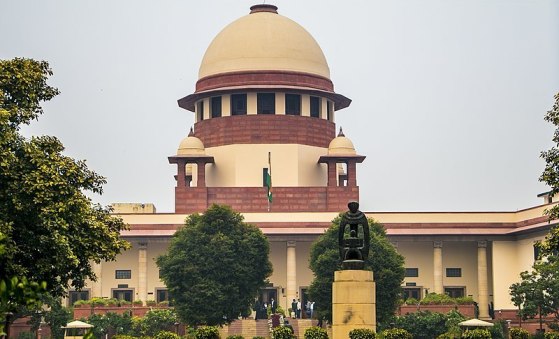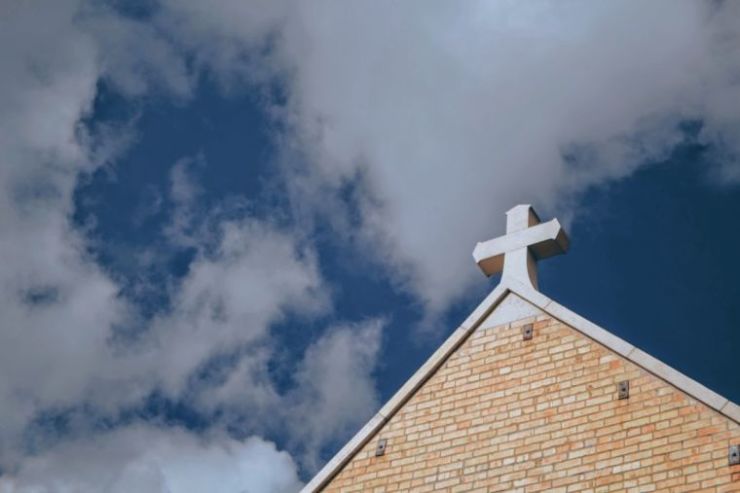
Around the world, Christians are suffering for their faith. The threat of harassment, abduction, violence and, of course, death, are the daily reality faced by many believers. This is even more so at Christmas, when they are especially a target.
Open Doors CEO Henrietta Blyth tells Christian Today about some of the worst hit areas and what she wants to see the UK Government do to alleviate their suffering.
CT: What does Christmas look like for Christians in places where there is persecution?
Henrietta: Christmas makes Christians high profile. In the UK, this happens in a good way because we're allowed to celebrate, but in countries where Christians are facing opposition, it's very difficult and it does bring a lot of fear.
We were told by some of our friends in Kenya that they were just going to stay behind closed doors and celebrate Christmas with their families because they were worried about the consequences of meeting in public.
CT: In the last year, Kenya has seen more and more Christians gathering in private. Do you know why persecution has been getting worse there?
Henrietta: In 2019, Kenya was number 40 on our World Watch List of countries which are the most dangerous for Christians to live in. They face two main types of persecution, one from Islamic extremists, particular al-Shabaab, and the second from corruption, which is rampant throughout the country. If Christians speak out against corruption, they can be targeted, which is something we also find in central America and Colombia in particular.
CT: There were terrible Easter Day bombings in Sri Lanka this year.
Henrietta: Yes, we have worked through partners with the churches attacked. One of the devastating things is that the suicide bomber detonated the bomb just as the children were coming down the stairs from Sunday school and so a lot of children were killed. It has been devastating for a lot of people.
The thing that is so moving about the churches in Sri Lanka is their faith in the face of this bombing. One father who lost his 13-year-old son said, "God gave me my son for 13 years and now I know he's with the Lord."
The faith is really extraordinary and the way people stand through this. It's very humbling for those of us who don't have this experience.
CT: In North Korea, Christians can't even go to church or talk about Christmas. Do you know what Christmas looks like for the underground church there?
Henrietta: In North Korea, the word 'Christmas' doesn't even exist. The country is number one on the World Watch List and so they can't publicly celebrate Christmas. I believe that around Christmas they often celebrate their own 'birthdays' to give themselves a chance to celebrate - because of how dangerous it is to be a Christian, they create a different reason to gather and celebrate in order not to arouse suspicion.
Hae Woo, our north Korean sister, now lives in South Korea but was imprisoned for some years in an internment camp in North Korea. There are around 60-70,000 Christians in internment camps in North Korea.
In the camp where Hae Woo was prisoner, they were subjected to forced labour and every evening they had to go to re-education classes designed to make them renounce Christianity.
During that time, though, she brought five people to Christ and they would meet in the toilets and worship together. It was so disgusting but it was the only place where the guards didn't go. And so they would meet there and worship together in whispers so that nobody could hear them. And when they would walk past each other in the fields, the Christians would whisper words of encouragement to each other, like "Hallelujah".
She told us that when there was a massive storm, the Lord showed her that this was the moment she could go outside and praise Him at the top of her voice because no one would hear her.
It is remarkable that even in the most dire of situations, Christians find ways to worship Jesus. There is so much in the Christmas story about joy leading to worship. That's the natural response to the birth of Jesus, to be filled with joy and to want to worship him. But because their faith has been so tested in the fire, their faith has so much depth to it. They will do whatever they can to worship. Sometimes in this country, we might feel like we want to stay at home because we're a bit tired or the weather's not great. But in places like North Korea, where they have suffered in this way for their Lord, they want to worship the Lord in whatever way they want.
CT: It's hugely challenging to us in the West, isn't it?
Henrietta: It is. My faith has grown exponentially since I came to Open Doors; it's been so convicting for me.
CT: North Korea has been number one on the World Watch List for some years. Has anything at all improved for the Christians there?
Henrietta: As far as we know, it's still the same. What we do know is that there are Christians all around the world praying for them and that Christians in South Korea are getting ready for the moment when the wall comes down and they can go in and share the light of Jesus with the North Korean population.
A brother from South Korea was here some months ago and he said he was reading books about how the Berlin Wall came down, and is learning from those. He and other Christians in South Korea are praying and getting ready for that wall coming down so that they can finally go in and set God's Kingdom alight in North Korea.
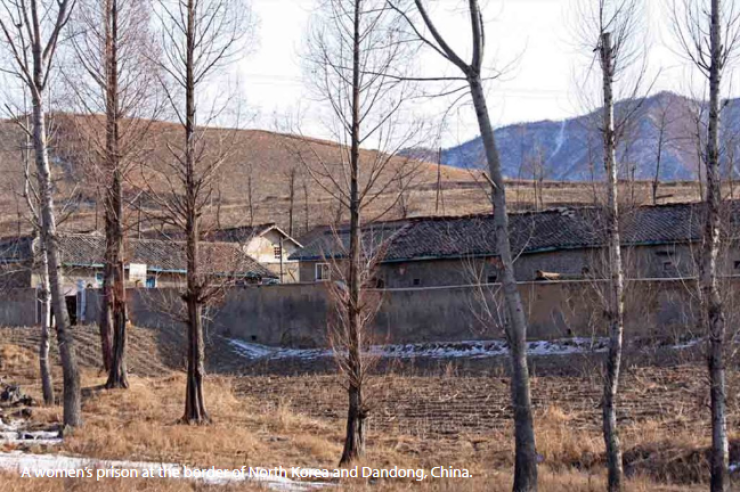
Although the situation is still very challenging, we live with hope that things will change because the story of the Bible is the story of a persecuted religious minority - the Jews - and I think that what we can take hope and encouragement from is that every empire that set itself up against the people of God was ultimately destroyed. None of them survived.
God will set His people free. That is the promise of Christmas, that God will rescue His people from the enemy camp. And He's going to do that in North Korea. It's just a question of time. And in the meantime we have to keep praying and supporting the unbelievably brave Christians who continue to go in to support their brothers and sisters in the country.
CT: Another country that in previous years has been targeted with church bombings and attacks around this time of year is Egypt.
Henrietta: Yes, in January this year, there was an attack on the Coptic church in Egypt. I was in Egypt a year ago and we visited a church in Cairo that had guards outside it and our bags were searched as we went in. The Christians there are living with a lot of scrutiny and fear, and we don't know if the security are inspecting the bags because they want to protect the Christians or because they want to know who's going in - Egypt is a strongly Islamic nation.
But it is worse in the rural areas. Christians in one village were overheard meeting together and the local imam stirred men up to go and raid several Christian homes. They destroyed all of the electrical equipment in the homes just because the imam had said they were going to create a church.
A friend told me that someone in his church had been stopped by the police and been asked to turn on his phone, which he had done, and it showed a Christian icon on his screen. He was then asked for his ID card, which showed his name to be Muhammad, from which the policeman deduced that he was a convert. He was then detained for three days and the officer told the others that he was an infidel, and so he wasn't given any water - and this was in September, when it was hot.
I think life is increasingly difficult for Christians in Egypt. But the Coptic Christians were nominated for a Nobel prize because they haven't retaliated violently. And we went to a church in Egypt where they've baptised 6,000 Christians since the Arab Spring, and the reason for this is that moderate Muslims have seen what extreme Islam looks like and they've turned away from it in their thousands.
But I think the other thing is that when they see Christians responding to this kind of violence and aggression with love and forgiveness instead of fighting back, when they see Christians turning the other cheek and praying for their persecutors, this is what people find most convicting and they start asking why; why are Christians like this? It makes many people want to find out more. I think the witness of these Christians in the midst of persecution is extraordinary.
CT: Christians in Pakistan have also experienced church attacks and attacks on their homes. And in Pakistan there is a blasphemy law, which has caused problems for Christians like Asia Bibi. The law is a problem, isn't it?
Henrietta: It's not so much the anti-blasphemy law as the way the law is used. It's used as an excuse to imprison Christians. With Asia Bibi, it was really a trumped up charge; they accused her of blaspheming the Prophet Muhammad and throughout her ordeal, she repeatedly said she did not.
In Pakistan, a neighbour will have a grudge and then they will use the blasphemy laws to get somebody jailed. It does make it very difficult for Christians. We would really like to see the law properly applied and we don't think that's happening now.
In Asia Bibi's case, two of the lawyers defending her, who were both Muslims, were murdered by extremist Islamists.
The situation in Pakistan is really difficult but we hear stories of people having dreams of Jesus and people coming to faith. We really need to pray that the Lord will raise up leaders in Pakistan to disciple new believers.
But also, Pakistan is another country where it is really difficult for women. We estimate around 700 Christian women and girls are abducted and forced to marry a Muslim man each year.
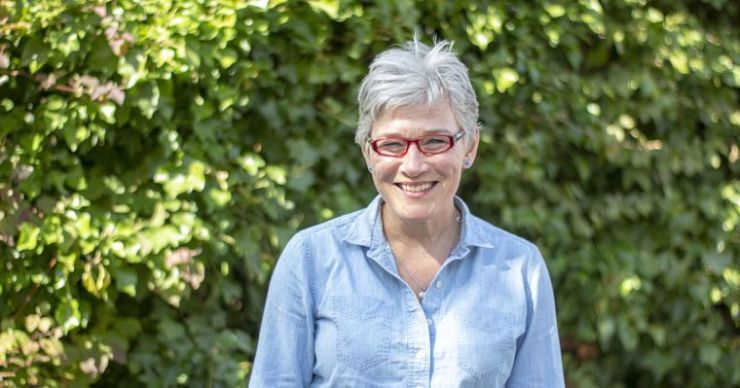
But a place where the persecution has taken me by surprise this year is West Africa. In West Africa, you've got a Christian presence in the south and then wIslamic extremism coming down from the north. In Burkina Faso, the persecution has become absolutely horrendous in the space of a year.
The other place where things are incredibly difficult is Eritrea, where there were such hopes around the new prime minister that the country would open up, that people would be able to move across the borders again and that the economy pick up. But church leaders there tell us it's like being imprisoned in their own country.
CT: The Bishop of Truro published his persecution review in the summer and the government at the time said they would accept the recommendations. What do you make of the review? Do you think it's a sign that the Government are finally giving persecution the attention it deserves?
Henrietta: We and others were involved in helping the bishop pull the report together but it's tricky because we've got a new government and are onto our third Foreign Secretary since the review. The bishop's report was very good and looked in detail at case studies of countries we know are troublespots for persecution, like Nigeria. And the recommendations were good ones, like the UK using its position in the UN to seek a resolution around the Middle East to ensure the protection and security of Christians.
What is also helpful is that it calls on the UK to be a global leader in championing freedom of religion or belief, which is Article 18 of the Human Rights Declaration, but also says that the review should be looked at again in three years' time - 2022. That would be an opportunity to keep the issue front and centre.
Some action has already been taken on the recommendations, like the creation of the John Bunyan Fund to fund more research into persecution. They have done that already so that's really positive.
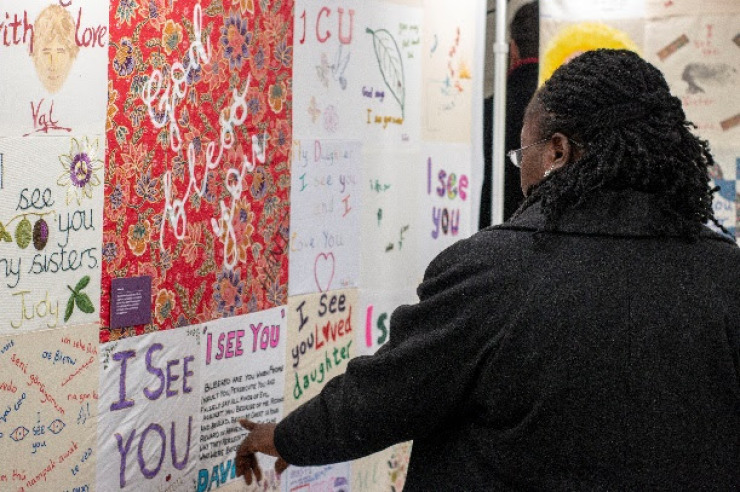
The review also talks about the Foreign Office championing the prosecution of ISIS persecutors of sex crimes against Yazidi and Christian women. We've been campaigning around the double vulnerability of women because of their gender and their faith, and we would like to see people brought to justice for sex crimes and gender-based violence separately from terrorist acts.
And what the review has also done is to raise the profile of Christians generally across the UK, Ireland and the world. We are very pleased that in the last government, there was a prime minister's special envoy for freedom of religion or belief. That role is very important. Before the election, we asked all of our supporters to lobby the candidates to do three things: one was to come to the launch of the World Watch List in January, the second was to push forward the prime minister's envoy role, and the third was to ensure that the review's recommendations were implemented.
The question now is whether the rest of the review's recommendations will be implemented as promised. In the news this week, Boris Johnson vowed to defend persecuted Christians and said that his government would stand in solidarity with them. It's really positive that he's saying something publicly but the proof of the pudding is always in the eating. One of the challenges is Brexit and how trade agreements will be negotiated with countries where Christians are having an increasingly difficult time. We would like to see the government raise religious freedom in its discussions around trade agreements. Time will tell whether that happens.
